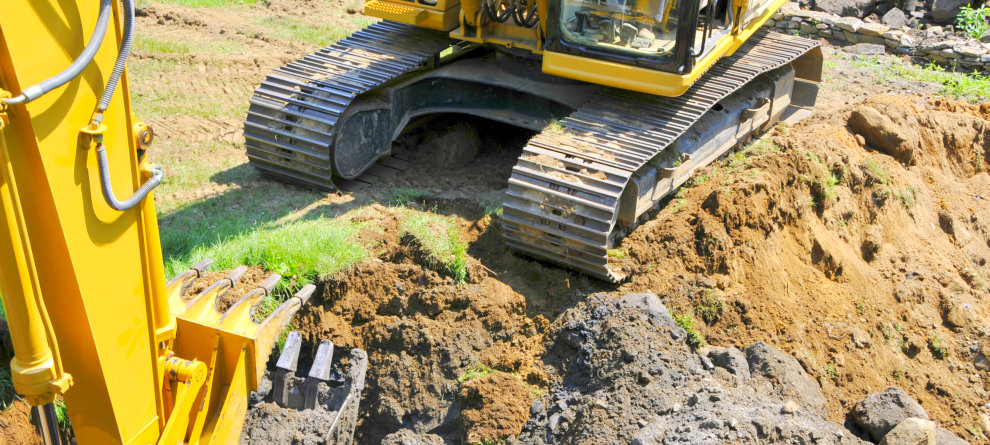Comprehensive Excavation Methods: Grasping the Fundamentals for Success
The careful preparation, specific execution, and thorough focus to detail needed in excavation jobs demand a comprehensive technique that includes various basic aspects. The real proficiency exists not merely in comprehending these principles yet in effortlessly integrating them to navigate the complexities of excavation jobs with finesse.
Understanding Excavation Task Preparation

Effective excavation jobs are built on the structure of detailed and thorough planning. The first phase of any kind of excavation job is the planning stage, where critical decisions are made that can considerably influence the result of the task. During this stage, it is important to collect all relevant info concerning the site, consisting of topographical surveys, dirt make-up, and any prospective hazards that might exist. Recognizing the project timeline, spending plan, and scope restrictions is crucial for producing a detailed excavation strategy that makes sure the project's success.
One secret element of excavation job planning is the advancement of a thorough timeline that outlines the sequence of milestones, activities, and target dates. This timeline functions as a roadmap for the job group, permitting them to track development and make needed modifications to ensure the project remains on timetable. Furthermore, a well-defined budget that accounts for all expenses, consisting of devices rental, labor expenses, and materials, is vital for preventing cost overruns and delays. By thoroughly considering all these variables throughout the planning phase, excavation jobs can be performed efficiently and properly, resulting in effective end results.
Dirt Analysis and Site Examination
Conducting thorough soil analysis and website analysis is an essential step in the prep work stage of any kind of excavation project. Soil evaluation entails determining the structure, framework, and buildings of the dirt at the excavation site. This info is vital for understanding the dirt's bearing ability, dampness web content, and potential for disintegration, which are crucial elements in establishing the excavation methods and equipment needed for the task.
Website analysis surpasses soil analysis and includes a wider evaluation of the general website problems. This analysis consists of recognizing any kind of prospective threats, such as below ground energies, environmental issues, or unsteady surface, that might affect the excavation process. By thoroughly reviewing the site, task managers can develop effective excavation methods that focus on safety and security, effectiveness, and ecological protection.
Making use of innovative modern technologies like ground-penetrating radar, dirt tasting, and drone surveys can enhance the precision and efficiency of dirt evaluation and site evaluation. Spending time and sources in these preliminary steps can eventually conserve time and stop costly delays or issues during the excavation procedure.
Equipment Option and Usage
Reliable excavation jobs rely heavily on tactical devices selection and application to make sure ideal performance and performance. Choosing the right tools for the job is crucial in optimizing efficiency and decreasing downtime. Aspects such as the sort of soil, depth of excavation, and task range play a significant duty in determining the most ideal devices for the task at hand.

Along with selecting the proper devices, appropriate utilization is essential to project success. Operators should be trained to manage the devices safely and successfully - septic ohio. Normal upkeep checks and timely repair work assist protect against failures and make certain constant performance throughout the task
Security Procedures and Laws Compliance
In the world of excavation tasks, prioritizing precaution and compliance check it out with regulations is paramount to guaranteeing a legitimately sound and protected functional atmosphere. Safety and security measures include a variety of methods, including conducting thorough website evaluations, carrying out appropriate signs and barriers, and supplying adequate safety and security training for all workers involved in the excavation procedure. Adherence to regulations, such as OSHA requirements in the USA, makes sure that the excavation task fulfills the required requirements to safeguard employees, onlookers, and the surrounding setting.

Tracking Development and Adjusting Techniques
How can project managers properly track the development of excavation tasks and adapt their methods accordingly to optimize results? Surveillance progress is essential for making certain his explanation that excavation jobs remain on track and fulfill deadlines.

Verdict
To conclude, mastering the principles of thorough excavation techniques is important for the success of any kind of job. By understanding task planning, analyzing dirt and site problems, selecting proper tools, following security regulations, and checking development, task supervisors can guarantee a effective and smooth excavation procedure. Applying these techniques will certainly result in effective outcomes and minimize possible dangers or troubles during the excavation job.
The initial phase of any type of excavation job is the planning stage, where crucial decisions are made that can dramatically affect the end result of the project. Comprehending the job extent, budget, and timeline restraints is essential for creating a thorough excavation plan that guarantees the job's success.
Just how can predict supervisors successfully track the innovation of excavation check over here projects and adapt their methods as necessary to optimize end results? By very closely monitoring progress and being prepared to adapt approaches, project managers can enhance the overall success of excavation projects.
By comprehending job preparation, analyzing soil and website problems, picking appropriate devices, conforming with security guidelines, and keeping an eye on development, job supervisors can make certain a smooth and reliable excavation procedure.
Comments on “Excavating Ohio - Top Excavation Service Providers for Ohio Projects”